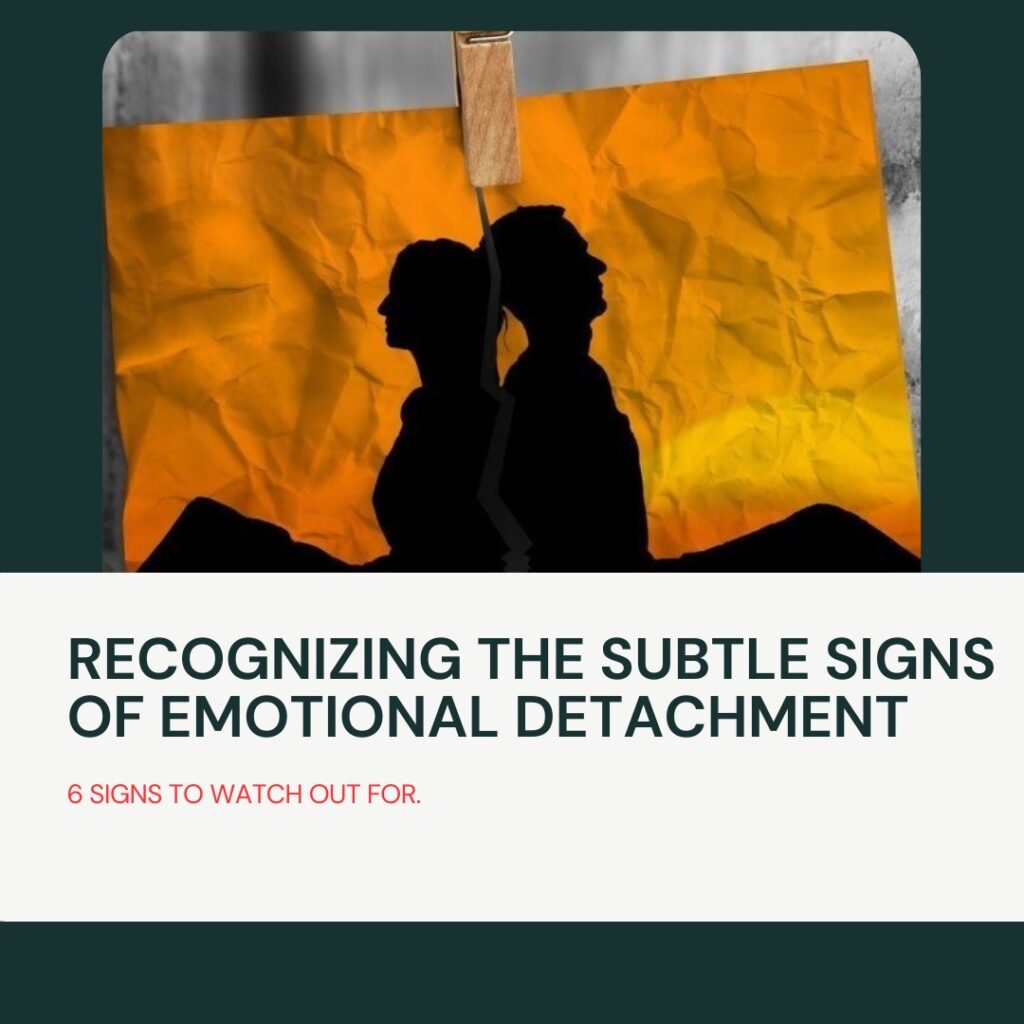Recognizing the Subtle Signs of Emotional Detachment
Are you struggling to connect with your partner on a deeper level?
Do you feel like they’re consistently distant or unresponsive to your emotional needs?
You may be dealing with an
emotionally unavailable partner.
Emotional unavailability can manifest in different ways, making it challenging to identify.
However, recognizing the signs can help you address the issue and potentially save your
relationship.
As humans, we crave connection and intimacy in our relationships. But what happens when the
warmth and love start to fade, leaving behind a chill of emotional detachment? Emotional
detachment can creep into any relationship, often disguised as busy schedules, lack of
communication, unresolved conflicts, unmet emotional needs
6 Subtle signs to watch out for:
1. The Silence is Deafening: Conversations become stilted, and meaningful discussions dwindle.
2. Emotional Unavailability: Your partner becomes increasingly distant, unresponsive, or
dismissive.
3. Avoiding Intimacy: Physical touch and affection dwindle, leaving you feeling unloved.
4. Disconnection: Shared activities and interests fade, and independence becomes prioritized.
5. Defensiveness: Conversations turn into arguments, with defensiveness and criticism reigning
supreme.
6. Emotional Validation: Your feelings are minimized, dismissed, or ignored.
How can you rekindle the Flame?
1. Communicate Openly: Share your feelings, concerns, and desires.
2. Revisit Shared Interests: Reengage in activities that brought you together.
3. Emotional Intimacy: Prioritize vulnerability and meaningful conversations.
4. Seek Support: Consider couples therapy or counseling.
Emotional detachment doesn’t have to signal the end. Recognize the signs, address the issues,
and nurture your connection.
Emotional unavailability can manifest in different ways, making it challenging to identify.
However, recognizing the signs can help you address the issue and potentially save your
relationship.
In conclusion, emotional unavailability refers to a person’s inability or unwillingness to engage in
emotional intimacy, connection, or vulnerability. This can stem from past traumas, attachment
issues, or fear of emotional vulnerability.
